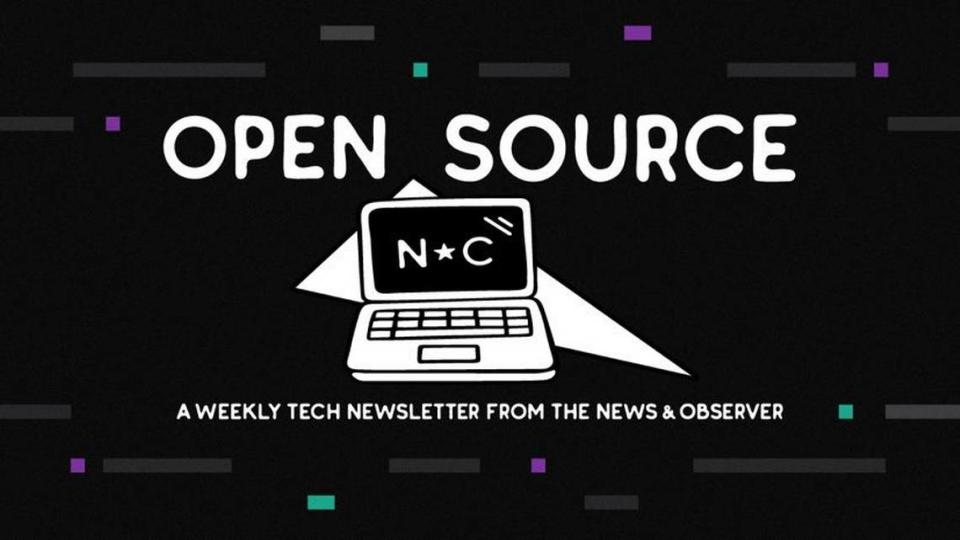Open Source: Where are the IPOs? Why more NC companies skip the stock market.
I’m Brian Gordon, tech reporter for The News & Observer, and this is Open Source, a weekly newsletter on business, labor and technology in North Carolina.
North Carolina today has about as many public companies as it did 20 years ago: around 150 public businesses headquartered in the state then and around 150 public businesses now, according to data provided this week by Andrew Mackinlay of Virginia Tech University and Chishen Wei of the Hong Kong Polytechnic Institute, who track historical IPO activity.
Given the state’s rapid population growth since 2004, this flat trend may actually support, not contrast, a broader reality: Many companies are choosing alternatives to going public and the total number of them on the market has significantly diminished. Compared to the 1990s, there are now approximately 40% fewer companies listed on the stock market.
Several factors may be behind this. One seems to be greater investor demand for companies to be bigger before they IPO.
“There used to be a fair amount of appetite for micro-caps, which would be companies (valued at) under $1 billion,” said Scot Wingo, a Triangle entrepreneur, who helped take his e-commerce cloud platform business ChannelAdvisor public in 2013.
His company was one of 11 in North Carolina to IPO that year, according to Mackinlay and Wei. But it’s now become rarer for similarly-sized businesses to hit the market, especially as many industries increasingly regard consolidation and scaling as necessities for success. Case in point, ChannelAdvisor was taken private by another commerce company in a 2022 acquisition.
“You’ve got to be bigger, you’ve got to be better to go public,” said Paul Clark, cofounder of VentureSouth, a regional early-stage investment fund in Greenville, South Carolina.
While the windfall from a public listing can be lucrative (Wingo recalls ChannelAdvisor raising $100 million through its initial and secondary IPOs), being on the market comes with some unpleasant realities. A lone quarter of missed revenue expectations can really damage a public company’s share price, whereas private investors may be more willing to stomach a dip. “When you’re a private company, life’s a lot easier,” Wingo said. “You can think longer term.”
Filing for an IPO, and then maintaining the required documentation, is also expensive. For a latter-stage startup, getting bought out can be more attractive, says Richard Warr, a finance professor at NC State. “Going public used to be the natural part of the progression of a company, but I don’t think that’s still the case,” he said.
The growth of private financing has created more prospective buyers with deep enough bank accounts to keep private companies private or take public ones off the market. Just this week, the private equity firm Permira purchased the public website hosting business Squarespace for nearly $7 billion.
Why does this matter? Founders still get paid. And retail investors are doing fine; even with fewer companies, the stock market is close to an all-time high. Well, one difference is the decline in corporate transparency that comes if more would-be public companies stay private. The SEC demands a lot of documentation from public companies: 10-Ks, 8-Ks, 10-Qs — which can be a great resource to journalists.

Wingo believes the Triangle needs more IPOs to grow its stature as a national tech hub. When ChannelAdvisor went public, he estimates between 10 and 20 local residents made seven-figures. A private buyout generates wealth, too, Wingo said, but it doesn’t signal the long-term commitment to an area in the same way.
So, are any Triangle companies on the verge of an IPO? The last to do so were a pair of Durham biotech businesses, Humacyte and Bioventus, in 2021. Each stock has since struggled. But “IPO windows” are cyclical, and there will be more favorable periods ahead — especially if interest rates recede.
The IPO answer most probably want to know about is SAS Institute, the massive 48-year-old software analytics provider in Cary. This week, the company affirmed its desire to IPO sometime in 2025. “Right now, we continue to focus on our preparedness and growth,” spokesperson Shannon Heath said in an email. “Teams across our organization are working toward getting SAS ready to operate as a public company. This includes refining our financial, IT, risk, compliance, and management information reporting systems, streamlining certain operational processes, and so on.”
If and when SAS goes public, it’ll find a less crowded market.
Clearing my cache
Wolfspeed has an activist investor in its chicken coop. On Wednesday, the firm Jana Partners revealed it owns a little less than 4% of the Durham semiconductor chipmaker. Known as a firm that takes stakes in businesses it looks to change, Jana has already communicated to Wolfspeed its desire to see the company reverse its poor-performing stock.
NCInnovation is underway. The public-private partnership that received $500 million (!) in the last state budget, announced its first eight pilot grants to help UNC System researchers commercialize their projects. The initial recipients include efforts to identify mosquitoes, protect beehives, backstop the power grid, refine lithium, and develop a new cancer treatment.
If you heard fireworks at 3 a.m. Monday morning, you probably live in Greenville, North Carolina, near the filming studio of world-famous YouTuber Jimmy Donaldson, better known as MrBeast. And his neighbors weren’t pleased with the overnight city-sanctioned barrage.

Raleigh video game company LightForge Games laid off 22 employees this week, according to a LinkedIn post, with impacted employees based around the country and a few international.
A pair of AI panel discussions took place this week. On Wednesday, Morrisville council member Steve Rao hosted former Cicso Systems CEO John Chambers to talk artificial intelligence. North Carolina Secretary of State Elaine Marshall and North Carolina Secretary of Technology Jim Weaver joined. Then on Thursday, Secretary Weaver lead an AI panel at North Carolina’s 2024 Technology Day, hosted by Lenovo and the North Carolina Technology Association.
“I’ve heard it said more plainly that AI won’t take your job, but someone using AI may,” said Robert Daigle, Lenovo’s director of global AI business. “Which is just the evolution of where many organizations are going.”
National Tech Happenings
President Joe Biden banned a Chinese-backed cryptocurrency mine in Wyoming near a military base.
Google is adding more AI summaries and personal touches to its core search engine.
Reddit will allow OpenAI to access its data in a new licensing deal.
Thanks for reading!

 Yahoo Finance
Yahoo Finance 